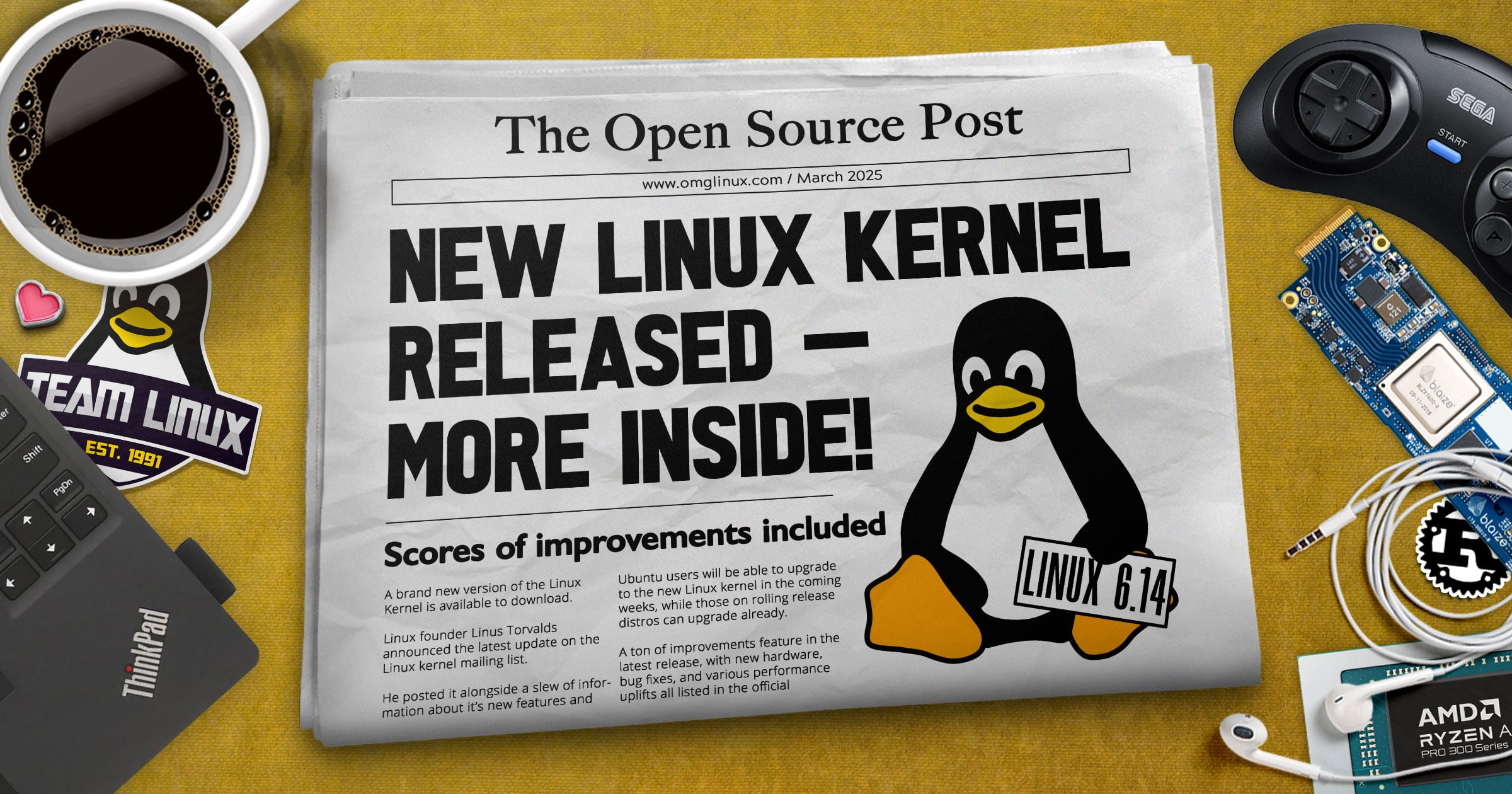- cross-posted to:
- linux_gaming@lemmy.world
- cross-posted to:
- linux_gaming@lemmy.world
That’s pretty cool that PowerPC was mentioned. I wish I still had my IMac G5 to run Linux on.
You could also buy insanely expensive IBM enterprise hardware. I think they still do PowerPC stuff
If I win the lottery, I won’t tell anyone but there will be signs.
The big boost for gaming is only relevant if you do not use Proton. While there might be some boost for selected games, in general the new Kernel 6.14 shouldn’t make much of a difference for Steam gamers using Proton. Because Proton already got some alternative to NTSync mechanism, which improved some titles already.
The benchmarks presented with huge %-boosts and improvements are compared to previous WINE version, which do not have some of the alternative optimizations from Proton. Therefore I would be a bit cautious, if you already play on Steam using Proton.
ntsync is superior to esync/fsync for stability. they were incompatible with certain workloads
No doubt about ntsync being superior and better than the hacky solutions of current implementation. My point is only about the performance gains, which can be misleading to some people if they do not pay attention. I’m not saying anyone was “false advertising” here, just making clear its compared against the base WINE version and not Proton.
I’m still curious and want to see how much of a performance difference in a real Steam environment will be.
Gayming
Funny, I just saw an article saying don’t get too excited about Linux gaming boosts because apparently Wine doesn’t use ntsync yet, and Valve already worked around ntsync by implementing the faster fsync in SteamOS.
esync = alpha version
fsync = beta version
ntsync = final release
Ntsync got rid of performance degradation that can occur with some games under esync and fsync and that’s the why it’s allowed to go in the mainline kernel, it has no downside.
Ntsync got rid of performance degradation that can occur with some games under esync and fsync
This explains SO MUCH! I was getting frustrated when games start out perfectly fine than 30 minutes in frames would drop significantly.
fsync isn’t faster than ntsync, it’s merely a workaround to match Linux to Windows synchronization primitives. From ntsync’s official description:
It exists because implementation in user-space, using existing tools, cannot match Windows performance while offering accurate semantics.
So without this, you either have a huge perfomance hit in case of an accurate implementation or you have good performance, but might run into edge cases where software doesn’t work well or at all because it’s not accurate (see https://github.com/ValveSoftware/Proton/issues/2922 for examples)
not my words. It’s the Valve dev who said it.
I don’t think his statement is true though. If https://www.reddit.com/r/linux_gaming/comments/1ce7z19/gaming_on_linux_ep131_ntsync_vs_fsync_nobara_39/l1ho8od/ is not manipulated in any way, games with lots of these calls still get big improvements with ntsync over fsync (about 30% in this particular case, which is a massive boost). So while nobody can rule out that his statement may be true on average or in general, there are still cases where ntsync offers a tangible advantage – be it improved FPS or the fact that the game runs at all.
Edit: in the video that the thread is about, fsync didn’t beat ntsync in a single one (or I missed it when jumping through it). In the best one, they were exactly tied. Sure, the difference wasn’t really big, but again there are titles not working with fsync.
However, I want to stress that I’m not trying to talk about fsync. It’s a good solution that significantly improved performance. But ntsync is, from everything I’ve seen, almost always better; how much depends on the case, and it never seems to be worse.
Why is he using the term “SteamOS kernel”?
Well, he’s talking about the kernel they are using in SteamOS. The Deck OS is also being extended to other handhelds.
Still a weird way to say this.
Not sure there’s a better way to say it. I guess “the SteamOS fork of the Linux kernel” would be more explicit, but I assume most people who would read this are aware that SteamOS is built on Linux.
I believe that NTsync delivers better compatibility. I do not remember the details but Fsync can cause problems sometimes. So this is more like performance without compromise.
Now that it is in the kernel, I would expect Wine to move to it and for Proton to follow suit.
One less hack to maintain.








